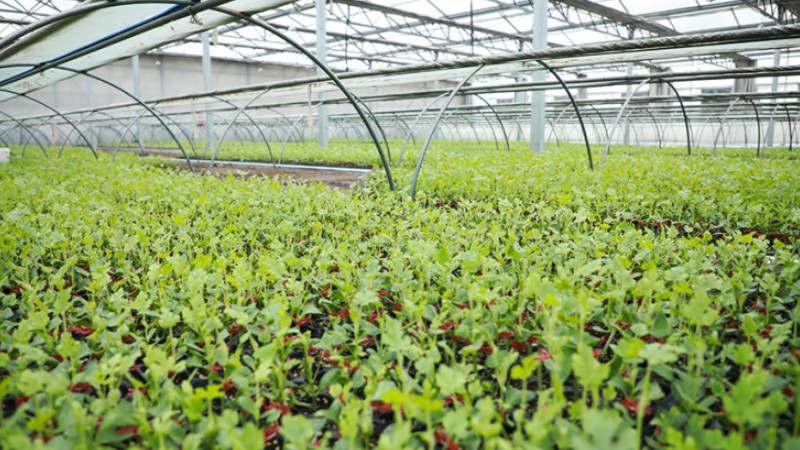To ensure that the global economy grows on right track
Recent reports issued by the United Nations (UN), the International Monetary Fund (IMF) and other organizations pointed out that the world economy will face greater downward pressure and increasing risks of recession because of the tightened monetary policies adopted by major economies such as the United States and Europe, geopolitical intentions, and continuous food and energy crises.
Faced with challenges, the international society is in urgent need to improve the effectiveness of global economic governance. In particular, major economies should enhance macroeconomic policy coordination, jointly contribute to safeguarding an open world economy and make concerted efforts to maintain long-term and stable economic development in the post-pandemic era.
To balance inflation control and stabilizing growth is a prominent challenge facing the world economy this year.
Some reports believe that high inflation, which has bothered developed economies, is not likely to be completely coming down this year, so these economies' will keep tightening their monetary policies, which increases the risk of economic recession.
The IMF attributed the possible slowing growth this year to advanced economies, whose growth is projected to decline from 2.7 percent in 2022 to 1.2 percent in 2023.
Advanced economies' maintaining deflation would create negative spillover effects, which might bring higher debt and financial risks to emerging markets and developing countries.
Growing trend of unilateralism and protectionist policies adopted by a few countries remain another major challenge facing the world economy.
For political purposes, a few major countries that are of huge influence over the world economy, have long followed irresponsible policies and measures that are against the market law and hinder cooperation and development. It triggered concerns from the international community that the world economy, which is in sluggish recovery, may face higher risks if such practice continues.
A severe fragmentation of the global economy after decades of increasing economic integration could reduce global economic output by up to 7 percent, but the losses could reach 8-12 percent in some countries, if technology is also decoupled, the International Monetary Fund said in a new staff report.
IMF Managing Director Kristalina Georgieva noted that economic integration has helped billions of people become wealthier, healthier, and better educated. "This peace and cooperation dividend should not be squandered".
Modern history reminds the world that major countries should practically take their responsibilities and enhance mutual coordination, which is of vital importance for the world economy to maintain stable progress amidst raging torrents.
At present, it is widely expected around the world that a few major countries should reclaim their sense of responsibility and play a constructive role in promoting the strong, sustainable, balanced and inclusive growth of the world economy.
The world economy has come to a crossroads. Only through enhanced coordination and cooperation can its anti-risk capability be raised.
It's important to see that this round of inflation has multiple reasons. Apart from the supply-side factors, the world needs to enhance international cooperation, address both the supply and demand sides, fix industrial and supply chains and pay close attention to energy and food security.
While controlling inflation, advanced economies should work to reduce the negative spillover effects caused by their adjustment in monetary policies and practically safeguard the stability of the international financial system.
Building an open world economy serves the common interests of the international society. All parties should build consensus and make joint efforts. Major countries, in particular, should maintain the stability of the global economic system, rules and foundation with concrete actions, rather than taking the lead to hinder international economic cooperation or divide global economy.
Crises and opportunities always emerged simultaneously in the history of world economy.
While effectively coping with risks, countries should take active and appropriate management measures to release more benefits of economic globalization and to rebalance the process of economic globalization.
They should focus more on development issues, jointly work to make global development more inclusive, beneficial to all and resilient, and accelerate the implementation of UN 2030 Agenda for Sustainable Development.
They should also strengthen international cooperation on tackling climate change and push for a comprehensive green transition in economic and social development.
As the world's largest economy, China is picking up speed in its own economic recovery and committed to improving global economic governance. The country will keep injecting confidence and positive energy into global economic development.
The historical trend of openness and development will not?reverse course, and the world's shared desire to?meet challenges together through cooperation will remain as strong as ever.
All parties should join hands with each other and proceed with confidence, so as to ensure that the global economy grows on the right track.
Photos
Related Stories
- China to play important role to help boost global economic growth: Saudi minister
- Chinese growth boosts global economic recovery: expert
- Global economic recession likely in 2023: WEF survey
- China to inject new impetus into global economy
- Interview: China's COVID-19 response will contribute to global growth, says WEF president
- Interview: China's anti-COVID-19 policy boosting global economic recovery
- China a sunny spot amid global dark clouds
- World Bank downgrades 2023 global growth forecast to 1.7 pct
- In numbers: Why Chinese Dream matters to global economy
- G20 leaders reaffirm commitment to cooperation to tackle global economic challenges
Copyright © 2023 People's Daily Online. All Rights Reserved.









